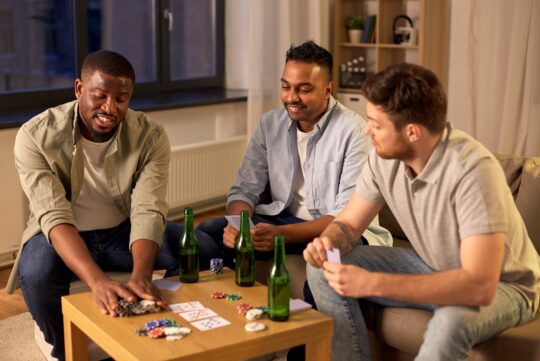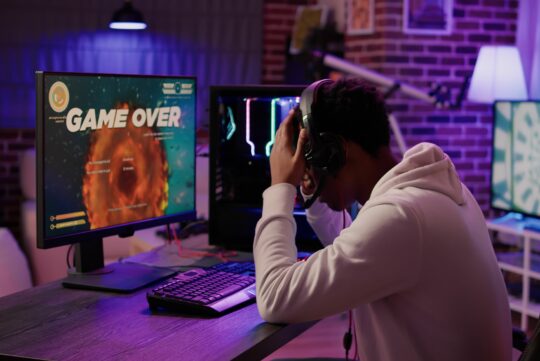Why is it important to understand your gambling?
Understanding how and why you gamble, and the impact it has, helps you to do something about it.
Being clear about the long-term effects your gambling has on you and the people around you, will help you decide whether you want to continue gambling, cut down or stop altogether.
How does gambling start?
It’s easy. It can happen to anyone. The gambling industry has been very successful in exploiting basic learning principles to encourage people to place a bet and keep them hooked. In 2019, people in the UK lost over £14 billion.
To start with, you may have seen gambling as fun. You may have watched others gamble, placed a bet when out with friends, or you may have picked up on advertising at sporting events which promotes gambling.

What keeps you gambling?
Difficulties with gambling can develop from a combination of:
- An early win or small token wins such as a ‘free’ bet. These can be very powerful in encouraging you to gamble again and again.
- The sensations that you feel when gambling or when you are about to gamble, such as excitement, arousal and tension.
- Over time, your experiences can start to develop a biased and distorted way of thinking about your gambling.

Impact and harms of gambling
Harm from gambling is not just about losing money. Gambling can affect the way you think and feel about yourself, your relationships, your performance at work, your social life and your physical and mental health. It can harm not only the person who gambles but the people around them too.

Starting signs of harm:
- Having less time or money to spend on recreation and family
- Reduced savings
- Increased consumption of alcohol
- Feelings of guilt or regret
- Lying to others to cover up the amount of time you spend on your mobile phone or internet, or how you spend your money.
Later signs of harm:
- Relationship difficulties or conflict
- Children showing signs of distress and experiencing difficulties at school
- Reduced study or work performance, days off sick or absent
- Financial difficulties/debts
- Having to do without basics like food, utilities and clothing
- Changes in sleeping, eating, or sexual relationship patterns
- Feelings of anger
- Feelings of shame and hopelessness
- Feelings of loneliness and isolation
If these signs have gone unnoticed, they can escalate or lead to more severe signs of harm.
Severe signs of harm:
- Bankruptcy and homelessness
- Relationship breakdown
- Severe anxiety and depression, possibly leading to self-harm and suicide
- Dropping out of studies or losing job
- Criminal and anti-social behaviour such as stealing from family and friends or committing fraud
Making changes to your gambling behaviour
If you need some support with making changes to your gambling, visit our self-help sections or refer yourself to the West Midlands Gambling Harms Clinic.